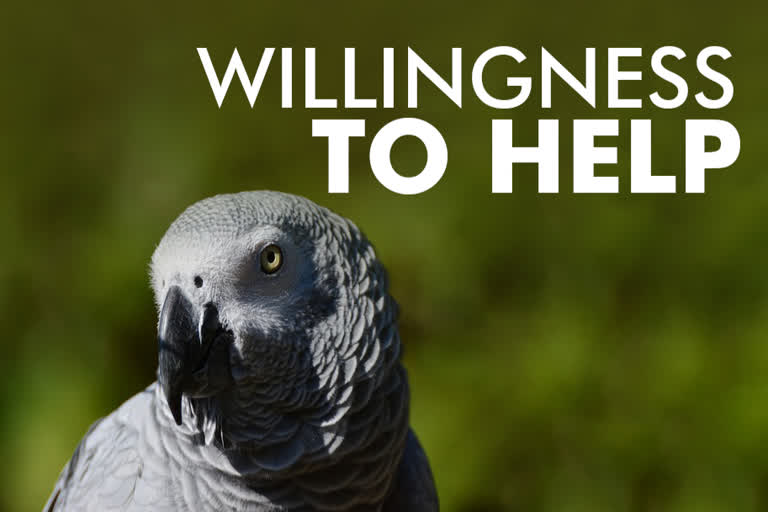Washington: Research has found that apart from humans, some birds--especially African grey parrots--have similar tendencies.
The study, published in Current Biology on Thursday, states, humans and other great apes have the willingness to help others going out of their way even if the help seeker is a stranger. Birds from specific families spread their wings of help in a similar manner.
"We found that African grey parrots voluntarily and spontaneously help familiar parrots to achieve a goal without obvious immediate benefit to them," says study co-author Desiree Brucks of the Max Planck Institute for Ornithology, Germany.
Read Also: Scientists can regenerate joint cartilage similar to zebra-fish, salamanders: Study
To ensure the fact, the researchers listed out several African grey parrots and blue-headed macaws. Both the species from the parrot family were willing to exchange tokens for nut treats. However, only the grey parrots wanted to give away their tokens to a neighboring parrot allowing them to taste the nut treats as well.
Parrots and crows have large brains in proportion to their body size and problem-solving skills to match. For that reason, they are at times considered as feathered apes, explain Brucks and study co-author Auguste von Bayern.
However, earlier studies have explained that in spite of their impressive social intelligence, crows have not been seen to help other crows. In the newest study, Brucks and von Bayern solve the puzzles about parrots.
"Remarkably, African grey parrots were intrinsically motivated to help others, even if the other individual was not their friend, so they behaved very pro-socially," Bayern says.
